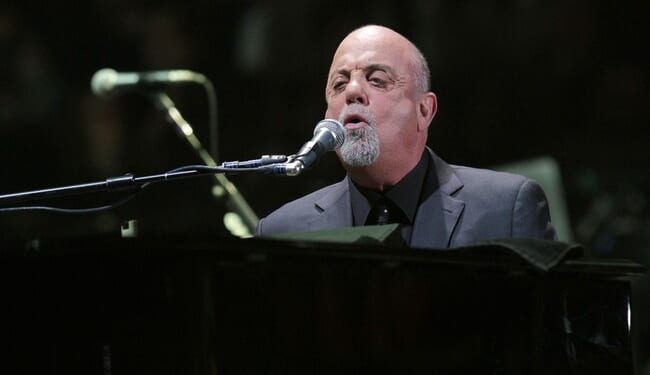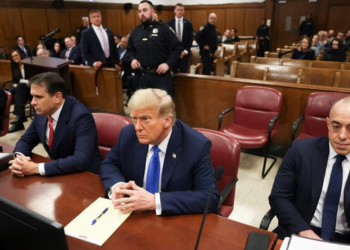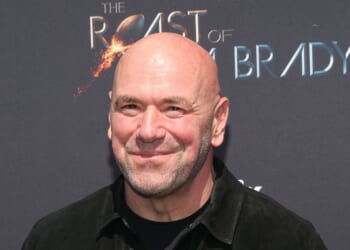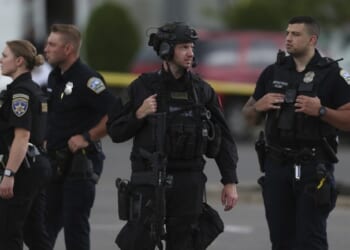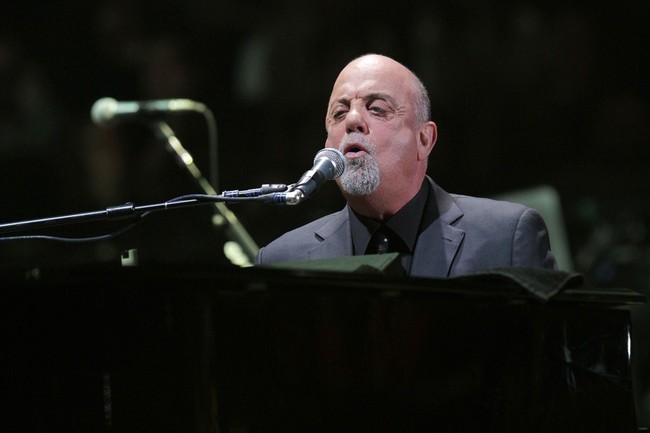
Billy Joel breaks his new-song silence on Feb. 1, teasing the release of “Turn The Lights Back On” with an all-too-short 28-second video.
The 74-year-old singer/songwriter has done a lot of singing in recent decades — including a ten-year residency at Madison Square Garden, soon to wrap — but very little songwriting. Aside from 2019’s strangely untimely “Christmas in Fallujah” and the Sinatra-esque “All My Life” in 2007, this will be Joel’s first new pop tune since 1993. I was well into my 20s when I bought that CD, so I guess Joel and I are both getting old.
The video begins in silence, with Joel turning a page of the music to “Famous Last Words,” to reveal something new underneath. Fans will get the reference — “Famous Last Words” was the oh-so-appropriately titled final track on his final album of popular music, “River Of Dreams,” released almost 34 years ago.
Joel then gives us maybe 15 seconds of piano chords, reminiscent of some of his best balladeer work from his ’70s/early-’80s heydey — a little “She’s Got A Way” or “Where’s The Orchestra?”
Fans of quantity over quality understood, if perhaps with some difficulty, when Joel swore off songwriting after “River Of Dreams.” He told Vulture magazine in 2018, “When I stopped writing songs, it was time. I couldn’t be as good as I wanted and that was driving me crazy.”
But just a single? A single with not one but three (!!!) co-writers? (On “Turn The Lights Back On,” Joel shares songwriting credit with Arthur Bacon, Wayne Hector, and producer Freddy Wexler.)
I hope the song is good. I know it won’t be enough.
For all of his huge string of hit singles — “Just The Way You Are,” “My Life,” “It’s Still Rock and Roll to Me,” “Pressure,” and “Tell Her About It,” just to pick a few pop chart faves at random — Joel was at his best recording full albums, each with a singular sound and meant to be listened to whole.
Let me break this down for you with some of his best albums.
“Piano Man,” 1973. “I am the next Elton John, effortlessly moving from pop to rock to honky tonk to gospel to folk and back again.” Here’s an underappreciated cut, “Travelin’ Prayer.”
I can’t get enough of that driving bass.
“The Stranger,” 1977. “I am the master pop craftsman of my age.” Although Joel must share credit on this one with his band and producer Phil Ramone, who went to extremes to capture the raw energy of their concert performances in the studio. Here’s an underappreciated cut, “Get It Right The First Time.”
Such a cheerful tune about the anguish of being a young man working up the courage to talk to a beautiful girl.
“52nd Street,” 1978. “I am also the slick master of jazz fusion.” Here’s an underappreciated cut, the “unfaded” version of “Zanzibar” with Freddie Hubbard’s complete trumpet solos.
Which is hotter — those piano chord progressions or Hubbard’s trumpet? YES.
Then there was “Glass Houses” in 1980. That was Joel’s “I’m not just a balladeer, I can rock hard with the punks and New Wave kids” album. That was followed by “The Nylon Curtain,” in 1981, when Joel tried his hand at John Lennon-level songwriting and psychedelia — and succeeded. Finally, his 1983 early rock tribute album, “An Innocent Man.”
From there his work trailed off, and I won’t bother. But for ten years there, a Billy Joel album was a sit-your-butt-down-and-listen experience.
Joel’s got an ego on him, as you can tell from the in-your-face ambition of his albums — even weaker efforts like “The Bridge” in 1986. Unlike Keith Richards or Flea, you probably wouldn’t want to hang out with Joel and have a few beers. But that man once knew how to craft an album like few others. I just wish he’d find his muse one last time for a full set of nine or ten tracks.
Finally, here’s that teaser clip for “Turn The Lights Back On.”
Here’s hoping it lives up to the hype.
Recommended: Republicans Recovered More Than 100 Encrypted Jan. 6 Files, but There’s a Catch

